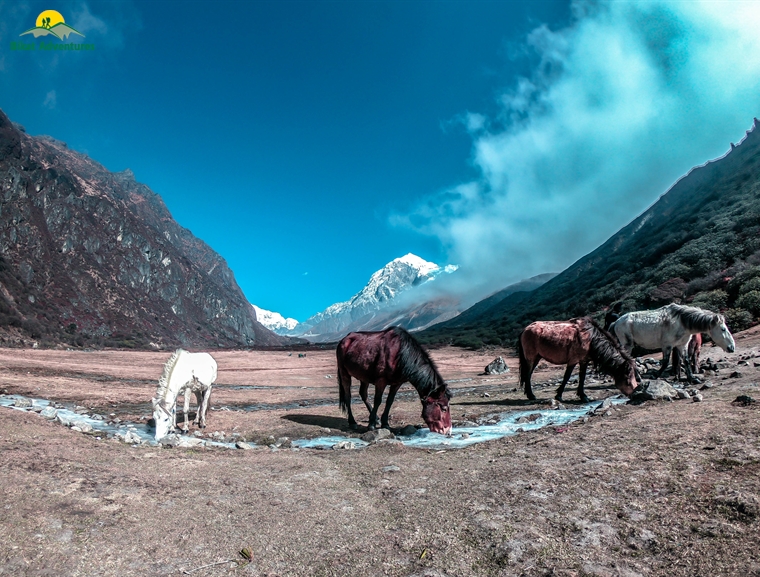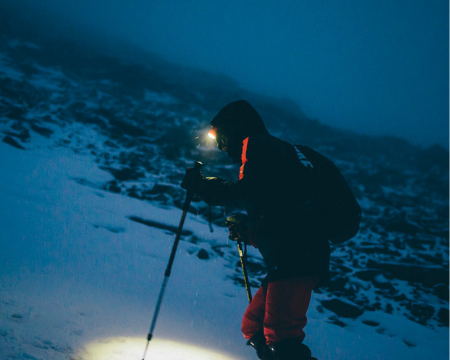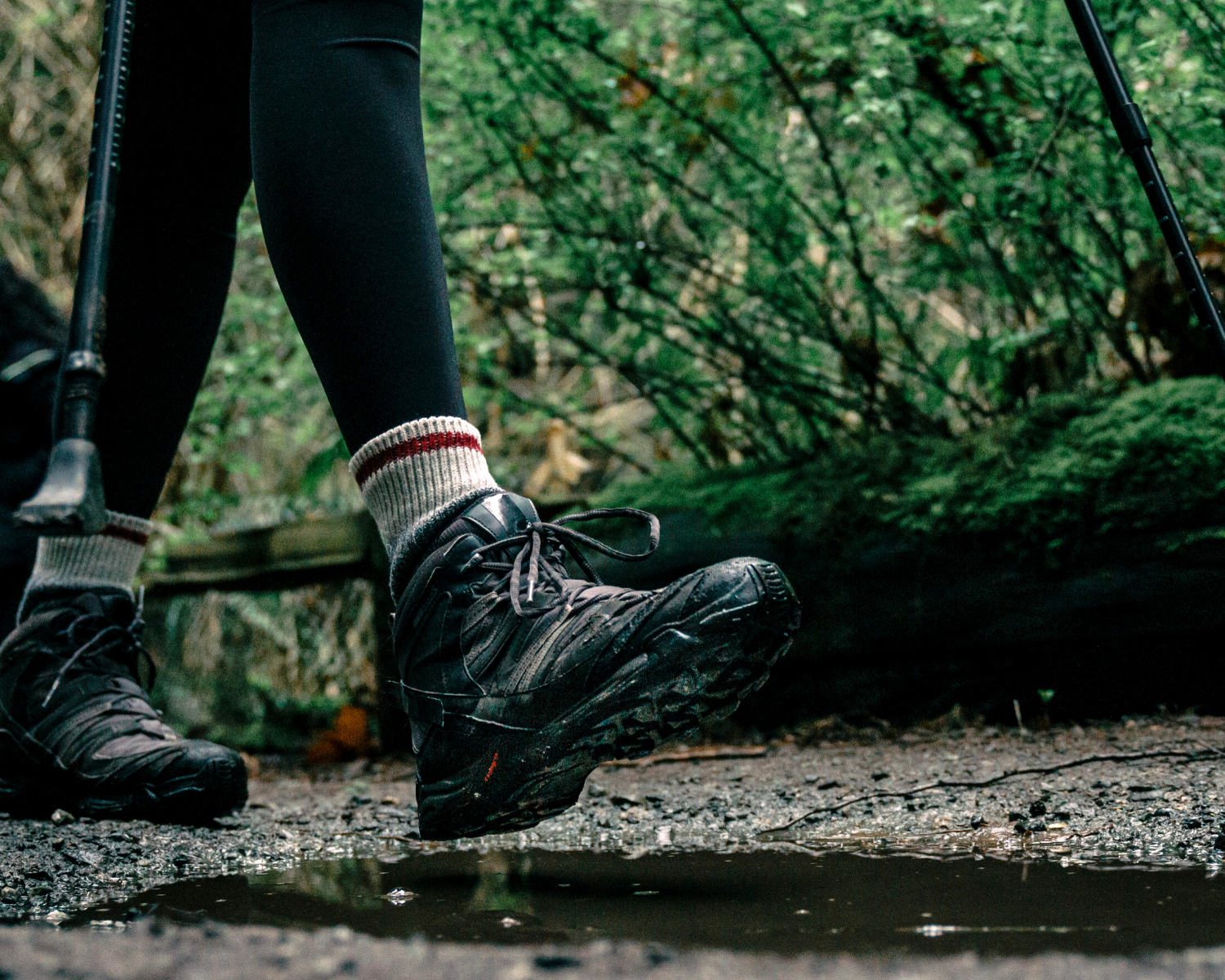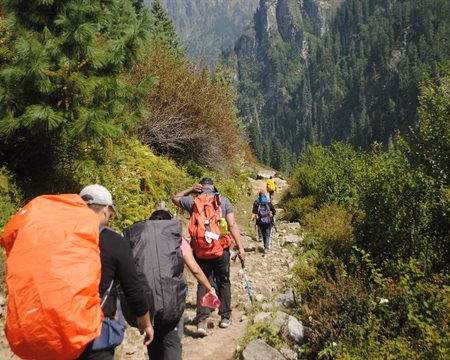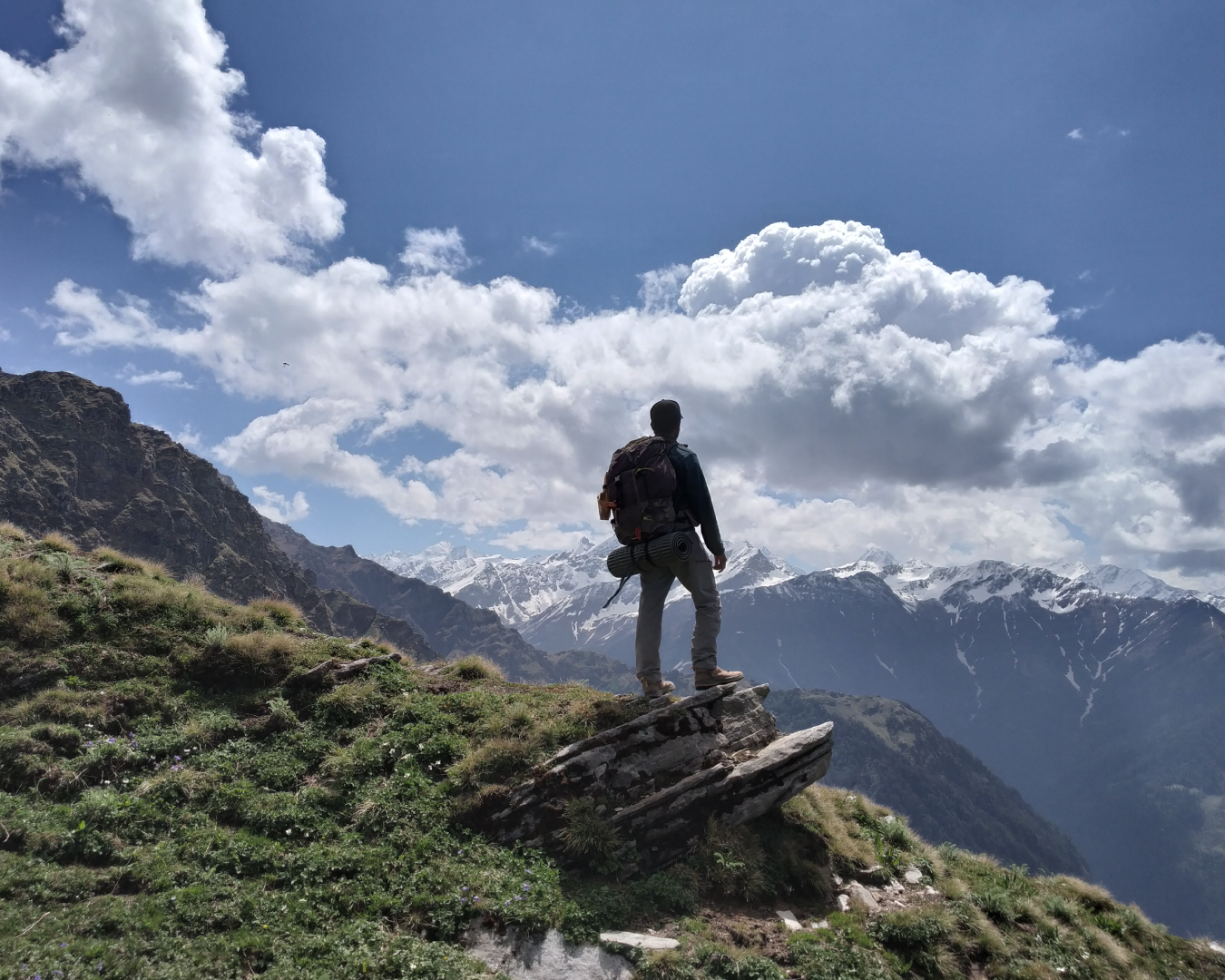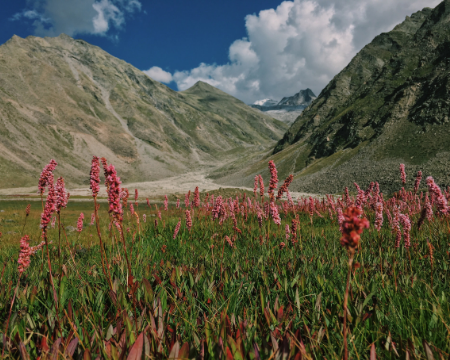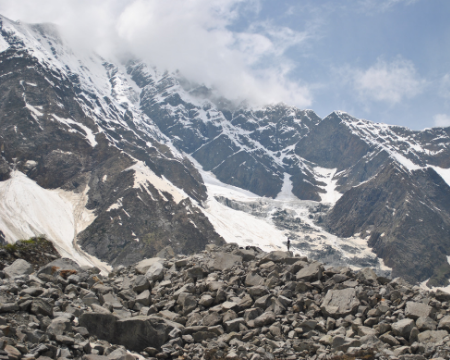Brief Description
This offbeat trek in North Sikkim brings you to a largely untouched landscape. This unexplored region greets you to herds of yak grazing under the towering snow-capped peaks of the Kanchenjunga range of mountains. From the beautifully forested valleys to the higher alpine regions to the land of the high mountains, the route for this minimally explored trek greets you with surprises on every turn to eventually bring you to the high-altitude lake. Of the over 200 lakes in the mountainous state of Sikkim, Kishong Lake is one of the holiest. It holds great significance for the Lepcha tribe, believed to be one of the oldest tribes to live, to this day. They believe this lake at the altitude of 4,500M marks the way to heaven and also that this is where their people originated from.
Flanked by mystical mountains, the entire landscape in the region remains largely untouched and pristine. The trek takes you through high-altitude villages, introduces you to the tribes who call these secluded lands home, brings you through dense, mystical forests and takes you up steep slopes to get you to the enchanting lake. Oh and we almost forgot, the ancient Tholung Monastery built in the 18th century and still standing alone and tall at 2,400M is another one of the highlights of this trek.
Located near Gangtok, the Kishong lake trek is unlike anything you have ever experienced because it takes you through the least explored parts of the state’s wilderness. Since it involves long days and steep slopes, it is meant for trekkers with some prior experience in high-altitudes.
The best months to do this trek are the pre-monsoon months of April to June and the post-monsoon months of September to November. Stay on this page for more information on the Kishong Lake Trek.
Itinerary
Itinerary
Show complete Itinerary
Gangtok (1,650M) to Dzongu
Distance: 90 km
Duration: 5 hour drive
Today is reserved to make our way to the trail head for this trek, i.e. Dzongu. We drive from Gangtok to the last motorable point at Dzongu via Dikchu through the buffer zone of Kanchenjunga National Park. The drive should take close to 5 hours. We spend the night in a guesthouse.
P.S.: The best way to get to Gangtok is to fly to Bagdogra in Siliguri and take a cab to Gangtok which is about 125 kms away.

Dzongu to Chana (2,500M)
Duration: 6 hours
Today we trek to Chana village, the home of the Lepcha tribe. Only when you get here you realize how remote and untouched these regions of the state truly are.

Chana (2,500M) to Tholung (3,200M)
Duration: 5 hrs
Today we head to the village of Tholung, famous for the Tholung Monastary built way back in the 18th century. The village is surrounded by the magnificent peaks of the Eastern Himalayas. Since tomorrow we will be entering the higher mountain regions where it will take longer for the body to acclimatize, we keep today light and breezy. Try to take it slow and not strain yourself.

Tholung (3,200M) to Gikithang (3,800M)
Duration: 5 hrs
Today we enter the Kanchenjunga Biosphere Reserve which is a biodiversity hotspot rich in a variety of flora and fauna, some of them indigenous and rare. We should reach our campsite for tonight by early evening.

Gikithang (3,800M) to Kishong Lake (4,500M)
Duration: 6 hrs
Today is the big day. We head out to get to the pristine high-altitude lake resting placidly amongst high towering snow mountains. The entire setting is absolutely magical! We spend the night by the lake.

Kishong Lake (4,500M) to Tholung (3,200M)
It is time to head back. We retrace our steps all the way back to Tholung today where we will spend the night.

Tholung (3,200M) to Lingthem (1,300M)
We finally leave behind the frozen landscape and enter the land of the greens once again. Trekking across rice fields and terraced farms, we reach our destination for the day at the village of Lingthem. We spend the night here in a homestay.

Lingthem (1,300M) to Gangtok (1,650M)
Distance: 75 kms
Duration: 3-4 hours drive
We drive back to Gangtok today where we say our goodbyes. Expect to reach Gangtok by early afternoon.
Frequently Asked Questions
Pick your question
Eligibility: Experience required
One should have at least 7-10 Himalayan trekking days in their kitty, Experience of trekking at altitudes higher than 3700 metres.
Eligibility: Fitness benchmark
- Jog/Run for 5 Kms in 25-30 mins or Walk continuously for 10 kms (with 3-4 small breaks) on plain terrain (slight incline is better) - You would be required to produce a screenshot from a fitness app testifying the same
- Hold your breath for 30-35 seconds
If you are not meeting these benchmarks, please use the preparation schedule to improve your fitness till you achieve the above benchmarks.
Eligibility: Requisite Skills
- Ascending & Descending on snow
- Basics of Mountain Sickness
- Basics of Mountain Hazards
- How to cross small and large water streams
- How to use basic mountaineering equipment like gaiters & micro spikes
- Basic principles of acclimatization
About the activity: Why should I go for this trek?
Kishong Lake Trek - Sikkim
It is one of the greenest trails in the north-east Himalayas. Kishong Lake Trek is not for the faint-hearted. From the dense forest covered trail to the snow under your feet, Kishong Lake trek has it all. The trek is especially well known for the pristine nature of the trail in the North part of Sikkim which remains largely untouched by tourism. The varied flora and fauna found in the trail are the also one of the major attractions of the Kishong Lake trek which ultimately takes you to a stunning high altitude glacial lake at 4500 meters.Best Season: What are the best months to visit this trek?
April to June and September to October are the best months for this trek.
Packing List: What to pack
Click here for packing list.
Packing List: How should I pack my rucksack?
Packing List: How should I select my trekking shoe?
Connectivity: How to Reach the base of the trek & how to go back from the end point?
The trek starts from Dzongu which is located 120 km from the city of Gangtok in Sikkim.
By Air: The airport nearest to Gangtok is about 124 kilometres away in Bagdogra, West Bengal.
By Train: The nearest railway station to Gangtok is about 148 kilometres away in New Jalpaiguri (NJP).
Connectivity: What is the cellular network connectivity for this trek?
No network beyond Dzongu.
Age limit: What is the minimum & maximum age limit?
The minimum age limit is 13 years. However, minors aged between 13 to 17 should be accompanied with their parents or guardians. If you are above the age of 60, kindly carry a medical certificate from your doctor that deem you fit for adventure activities like trekking.
Accommodation: What will be the accommodation type in this trek?
On trekking days, all the trekkers will be accommodated in twin or triple sharing tents. Along with this, there will also be a toilet tent and a dining tent installed at every campsite as we roll.
Equipment and facilities: What kind of tents and sleeping bags will be provided to us?
We provide 4 seasons tents by Gipfel for higher altitudes which can easily withstand heavy snowfall and storms. They are spacious enough to accommodate 3 people at once with a vestibule to place the backpacks. Our sleeping bags are made up of Heatseeker Pro synthetic insulation that can provide you comfort in -10 degrees celsius. We also use additional fleece liners to have thermal efficiency even in the extreme temperatures of -17 degrees celsius.
Equipment and facilities: Are there any washroom/toilet facilities on the trek?
Toilet tents will be provided to you on the trek. These are portable toilets tents where a deep pit will be dug. A shovel will be provided inside the tent to cover the waste after you have made your business. You can take a toilet roll inside. Make sure you dig used toilet paper along with the waste. Though water is recommended in place of toilet paper. Please refrain from using wet wipes as they are non-biodegradable. There will be no facility for bathing on the trek. Go through our blog section for tips on how to maintain personal hygiene on treks.
Equipment and facilities: If we trek in snow, what equipment will you provide?
You will be provided with good quality gaiters and microspikes from us depending upon the situation of the snow. Our trek leaders will also be carrying ropes and ice ax.
Equipment and facilities: What kind of food will be provided for the trek?
Vegetarian food will be served throughout the trek. The only non-vegetarian item served on our treks are eggs. Our kitchen staff follows a proper menu for breakfast, lunch, and dinner which has been designed in order to fulfill the nutritional requirements of the participants. There will be milk, poha, eggs, muesli/corn flakes, bread, and butter served in breakfast. Rice or simple roti sabzi will be packed for lunch. In dinner, you will have dal, egg curry or any other vegetarian dish along with rice, roti, and a dessert item. Packed lunch will be provided to you on the days you are trekking. You are requested to carry your own tiffin box and a mug to consume food. The meals consumed on the journey and arrival day are not included in our cost.
Equipment and facilities: What equipment can I rent from you?
You can rent the following items from us- Trekking Pole, Trekking Shoes, Fleece Jacket, Rucksack
Weather conditions: What will the temperatures be like during this trek?
During the day, the temperature will range from 13-18 degrees Celsius. The nights will get cold dropping the temperature to 3-5 degrees Celsius. The higher the altitude you gain, the colder it gets. There will be a fall in temperature October onwards.
Weather conditions: When will there be snow on this trek?
There will be snow on the upper reaches of the trek in the months of April and November.
Miscellaneous : Is there an option to offload my backpack?
If you want to offload your rucksack, you will have to make a request for offloading a few days prior to the trek through an email so that arrangement can be made in advance. You will be charged per day for offloading your rucksack. In case you decide to offload on the spot, you may have to pay a higher price than usual. However, offloading your rucksack is not recommended since it is not a safe practice.
Miscellaneous : Who will lead us on the trek?
A team of the participant will be led by a course certified trek leader and a local guide. All participants are requested to abide by what their leader says. There will also be a team of kitchen staff and porters on the trek. We maintain a 1:8 ratio of trek leader and participants. All our trek leaders and staff have certified training in first-aid and rescue operation.
Miscellaneous : Is the trekking pole necessary?
Yes, the trekking pole is necessary. If you don’t want to buy one, you can rent it from us on minimal daily basis charges. You can request the renting link from us.
Miscellaneous : Are there any local stores/shops from where I can shop trekking necessities?
Gangtok has a large size market to cater to all your needs. However, do not leave anything for last minute buying.
Miscellaneous : Is it safe for a solo woman traveller to trek in Fixed departures?
Yes, it is absolutely safe for a solo woman to travel in fix departures. Women on the trek will be sharing a tent with each other. In case you are a single woman on the trek, you will be given a separate tent.
Miscellaneous : Will you give certificates on completion of trek?
Yes, e-certificates will be given at the end of each trek provided that you completed it. It will bear your name, the trek, and the maximum altitude you achieved on the trek.
Transport: In case we opt for the transport with you, where will you pick us from and where will you drop?
We will pick you up from Gangtok and drop you off to the same location.
Transport: What time will you drop us at the end point on last day of the trek?
Expect to reach Gangtok by late afternoon.
Mandatory documents: What are the mandatory documents required for the trek?
ID Proof (Soft Copy to be sent to us in Advance & original to be carried), Medical Certificate (Soft Copy to be sent to us & original to be carried), Inner Line Permit (For Foreign National), Photocopy of ID Proof and Passport Size Photo are the mandatory documents required for the trek.
Why Bikat
Why Bikat




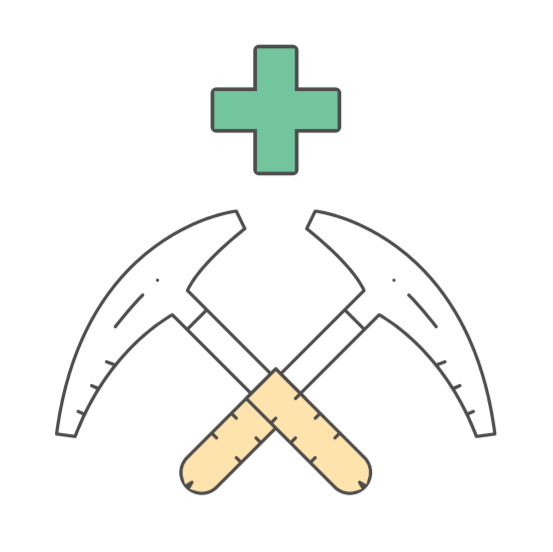

Learning Experience
- We are an Adventure Learning Organisation first.
- We want you to not just complete a trek safely but also pick up some basic trekking knowledge and skills along the way.
- To achieve this we have integrated learning modules into our itineraries.
- These modules will help you build the necessary skills to progress from trekking to mountaineering over time.
Loyality Programs
Our community is an integral part of us and we take pride in our trekkers and climbers. When you complete at least three days on any trek or expedition with us, you become eligible for our membership and referral programs.
- Currently we have three levels:
- Basic Membership
- Summiteer Membership
- Leader Membership
Personalized Attention
- Our group sizes on treks don’t exceed 15 members in order to maintain a healthy Participants : Leader Ratio of 8:1.
- Over time we have found this number to be optimum when it comes to ensuring personalised attention to every member of our group.
- On mountaineering expeditions this number is even smaller. Our group sizes are capped at 12 members ensuring a Participants : HAP Ratio of 2:1.
Best Expedition Leaders
- Our Expedition leaders are advanced mountaineering course qualified, specially trained in rescue procedures from NIM and certified first-aid responders.
- Even our local guides are certified first-aid responders.
Eco-friendly Practices
- Group sizes are capped at 15 people.
- Batch sizes are capped at 250 people per trail per season.
- We follow a rolling campsite model.
- We are constantly exploring and introducing new trails to reduce the burden on existing ones.
Safety
For us, a successful summit is not about reaching the highest point of a mountain but about making it safely back to base.
- To ensure this:
- Every region of ours is mapped with an emergency evacuation plan.
- The equipment we use is UIAA certified.
- Our trek leaders are AMC certified with specialisation in rescue procedures.
- Our support staffs are trained in first aid as well.


Reviews
What's Included
Whats Included
- Food as per menu on all trekking days
- Accommodation on trekking days in tents on twin sharing basis
- Forest Permits/Camping Charges , if any (Upto the amount charged for Indian nationals)
- Tents on twin sharing basis, Sleeping bags, mats
- Safety Equipment includes static rescue rope, seat harness, carabiners, pulleys
- Services of an experienced Trek guide, cook, helpers.
- Porters or mules for carrying common supplies
- Mountaineering course certified Trek Leader with First Aid certification
Whats Not Included?
- Portage of personal backpack
- Meals during road journey and hotel stay
- Cost of any kind of Insurance
- Any expense of personal nature
- Any expense not specified in the inclusion list.
Cancellation Policy
Cash Refund
Cancellations up to 30 days prior to departure date
5% Deduction
Between 30 days to 15 days prior to departure
50%
deduction
Less than 15 days of departure
No Cash Refund
Voucher Refund
Cancellations up to 5 days prior to departure date
No Deduction
Cancellations less than 5 days prior to departure
No Refund
Please note
- Cash refund is applicable only in case of bookings made without using any promotional offer code or vouchers.
- This is only a brief of cancellation terms. For finer details please refer Detailed Cancellation Policy.
Blog Posts
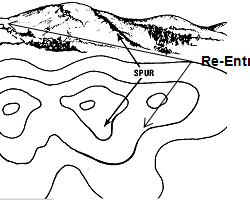
10 Mountain features that must be a part of any trekker’s vocab!
Ritvij Kumar 25 March 2017
MOUNTAIN FEATURES THAT MUST BE A PART OF ANY TREKKER’S VOCAB!
While the terminology used in mountaineering is decently complex but the features that I am going to talk about are mostly the common ones. When we go t
Read More